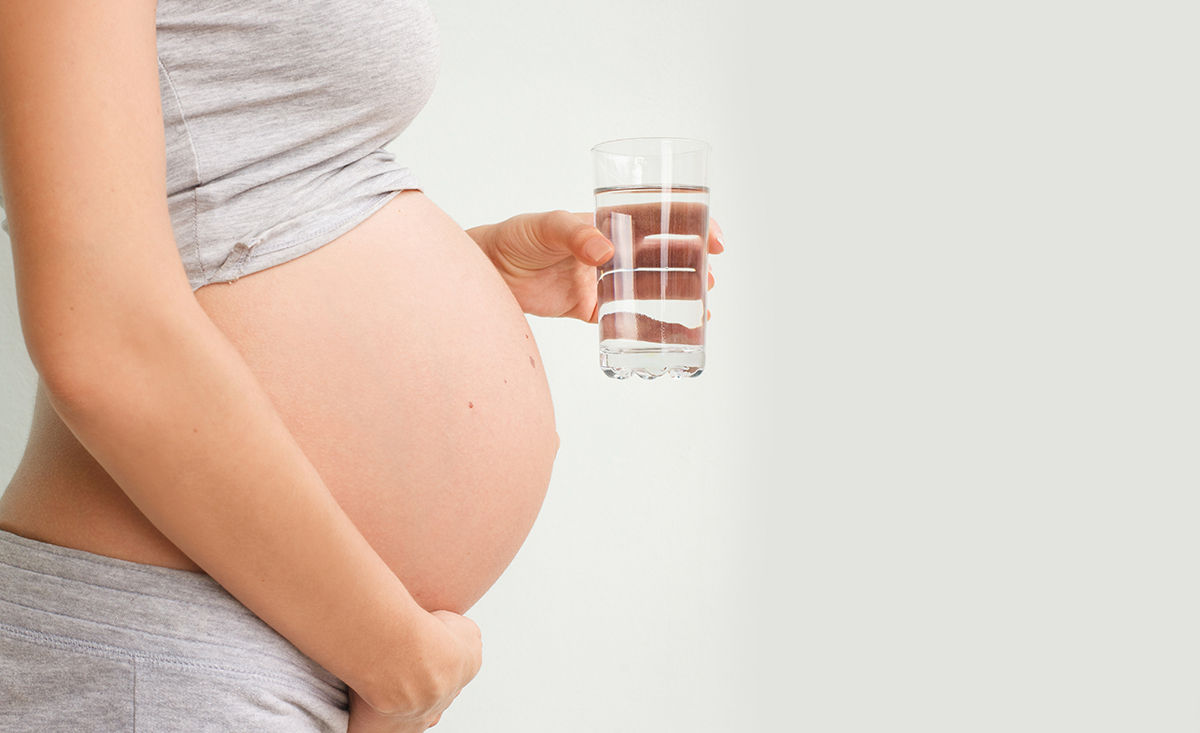Breastfeeding is the best for babies and a healthy diet / maternal nutrition is important when breastfeeding. A decision not to breastfeed can be difficult to reverse. Infant formula is suitable from birth when babies are not breastfed. It is recommended that all formula milks be used on the advice of a doctor, midwife, health visitor, public health nurse, dietitian, pharmacist, or other professional responsible for maternal and child care and the financial implications should be considered. All preparation and feeding instructions should be followed carefully as inappropriate preparation could lead to health hazards.
Dumex Tips on Each Pregnancy Trimester
Whether it is your first time expecting a baby, pregnancy can be both an exciting and daunting journey. While every woman experiences pregnancy differently, each trimester comes with its own set of hormonal and physiological changes.
A full-term pregnancy lasts about nine months and is divided into three trimesters, with each lasting for about three months. Here is a snapshot of what to expect in each trimester:
FIRST TRIMESTER
The first trimester begins on the first day of your last menstruation. While you may not look pregnant yet, you can notice early pregnancy symptoms caused by drastic hormonal changes in your body:
- Fatigue: You get tired more often as your body works harder to support a growing baby.
Tip: Rest more and eating a balanced nutritious meal.
- Constipation: High progesterone levels slow down intestinal muscle contractions, causing digested food to move slower through your system.
Tips: - Add more fiber and fluids to your diet to help ease bowel movements.
- Exercise regularly to help keep things moving smoothly in your digestive system.
- Breast tenderness is triggered by hormonal changes that prepare your milk ducts for breastfeeding.
- Peeing more due to increased pressure, your growing uterus exerts on your bladder.
Tips: - Continue keeping yourself hydrated as it is vital for your health.
- Cut down on caffeine which stimulates your bladder.
- Heartburn happens when increased progesterone relaxes your lower oesophagus muscles, causing acid reflux.
Tip: - Avoid spicy, greasy, and acidic foods.
- Eat small meals throughout the day.
- Raise your pillows when sleeping.
- Neural Tube Defects is a serious birth defect of the brain that occurs in the early stages of pregnancy.
Tip: Supplementation like folic acid and iodine are important to prevent neural tube defects, speak with your gynecologist if you need it. - Morning sickness is common among pregnant women, especially in the first trimester. Typical symptoms include nausea and vomiting triggered by certain odours, foods or at times, without causes. See a doctor if any of the following happens:
- Severe nausea or vomiting.
- You cannot hold down liquids.
- You feel dizzy when standing up.
- You have heart palpitations.
- You urinate very little and it is dark in colour.
SECOND TRIMESTER
The second trimester sees most of the early pregnancy symptoms gone. You will start to look pregnant and may even feel your baby kicking inside. Some new symptoms to adapt to are:
- Varicose veins that happen due to the pressure your uterus exerts on the large vein that carries blood from your legs to your heart5. Commonly affecting the genital area and your legs, they can cause itch, discomfort, and even pain.
Tips: - Move around more to help promote blood flow.
- Try sleeping on your left side to avoid exerting pressure on the vena cava vein on the right side of the body.
- Wear maternity pantyhose to encourage blood flow.
- Avoid crossing your legs when sitting.
- Backaches in pregnancy happen for reasons ranging from weight gain and postural change to muscle separation and stress.
Tips: - Exercise regularly. Safe workouts include swimming and walking.
- Applying heat and cold pads to alleviate discomfort. However, you should not use them for too long.
- Leg cramps due to involuntary muscle contractions that commonly happen at night.
Tips: - Stay hydrated.
- Take enough calcium and magnesium.
- Stretch your calf muscles.
- Wear proper shoes to boost comfort.
THIRD TRIMESTER
You are likely to experience more discomfort and swelling as your pregnancy approaches full term. Your baby’s organs are fully formed by now, and their heads would have moved downwards by Week 36 in preparation for birth. Common events to expect in the third trimester include:
- Tender breasts which may leak.
- More movements from your baby.
- Sleep difficulty.
- Heartburn.
- Swollen face, fingers, or feet.
Continue taking care of yourself as you prepare for your baby’s arrival:
- Stay active with light exercise.
- Keep a diet rich in vegetables, fruits, fiber, and low-fat protein.
- Keep yourself hydrated.
- Do Kegel exercises to strengthen your pelvic floor.
SUPPORTING EACH TRIMESTER TO MEET YOUR NUTRITIONAL NEEDS
Getting enough of the essential nutrients is crucial for your own wellbeing. One way to supplement your diet is through Dumex Mamil Mama – a milk formula designed for both expectant and breastfeeding mothers.
Like other milk formulas in the Dumex Mamil Gold range, Dumex Mamil Mama is free from genetically modified organisms (GMOs) and colourings. This milk formula packs over 20 essential nutrients like folic acid, calcium and iron which helps to meet your nutritional needs. To help support gut health, our milk formula also packs prebiotics which promotes the growth of good Bifidus bacteria in your digestive system.
Visit https://www.dumex.com.sg/products for more information on Dumex Mamil Gold milk formula.
REFERENCES:
- Stickler, T. (2019). Trimesters and due date. Healthline. Retrieved July 31, 2020, from https://www.healthline.com/health/pregnancy/calendar
- Trottier, M., Erebara, A. & Bozzo, P. (2012). Treating constipation during pregnancy. Canadian Family Physician, 58 (8), pp. 836 – 838. Retrieved August 2, 2020, from https://www.ncbi.nlm.nih.gov/pmc/articles/PMC3418980/#
- Douglas Simkiss, Preventing Neural Tube Defects, Journal of Tropical Pediatrics, Volume 63, Issue 2, April 2017, Pages 85–86.
- Mayo Clinic (2018). Morning Sickness. Retrieved August 1, 2020, from https://www.mayoclinic.org/diseases-conditions/morning-sickness/symptoms-causes/syc-20375254
- Gupta, R. C. (2015). Why Do Some Pregnant Women Get Varicose Veins? Kid’s Health. Retrieved August 1, 2020, from https://kidshealth.org/en/parents/veins.html#:~:text=Varicose%20veins%20are%20a%20common,%2C%20uncomfortable%2C%20or%20even%20painful.
- WebMD (n.d.). Causes of back pain in pregnancy. Retrieved August 3, 2020, from https://www.webmd.com/baby/guide/back-pain-in-pregnancy#1-2
- Timmons, J. (2016). Is a Heating Pad Safe for Back or Belly While Pregnant? Healthline. Retrieved August 3, 2020, from https://www.healthline.com/health/pregnancy/heating-pad-while-pregnant
- Marnach, M. (2019). Pregnancy week by week. Mayo Clinic. Retrieved August 2, 2020, from https://www.mayoclinic.org/healthy-lifestyle/pregnancy-week-by-week/basics/healthy-pregnancy/hlv-20049471
- Cafasso, J. (2017). The third trimester of pregnancy. Healthline. Retrieved August 3, 2020, from https://www.healthline.com/health/pregnancy/third-trimester-developing-baby

Read More

Ask Our Careline
Whatever’s on your mind, we’re here to help



